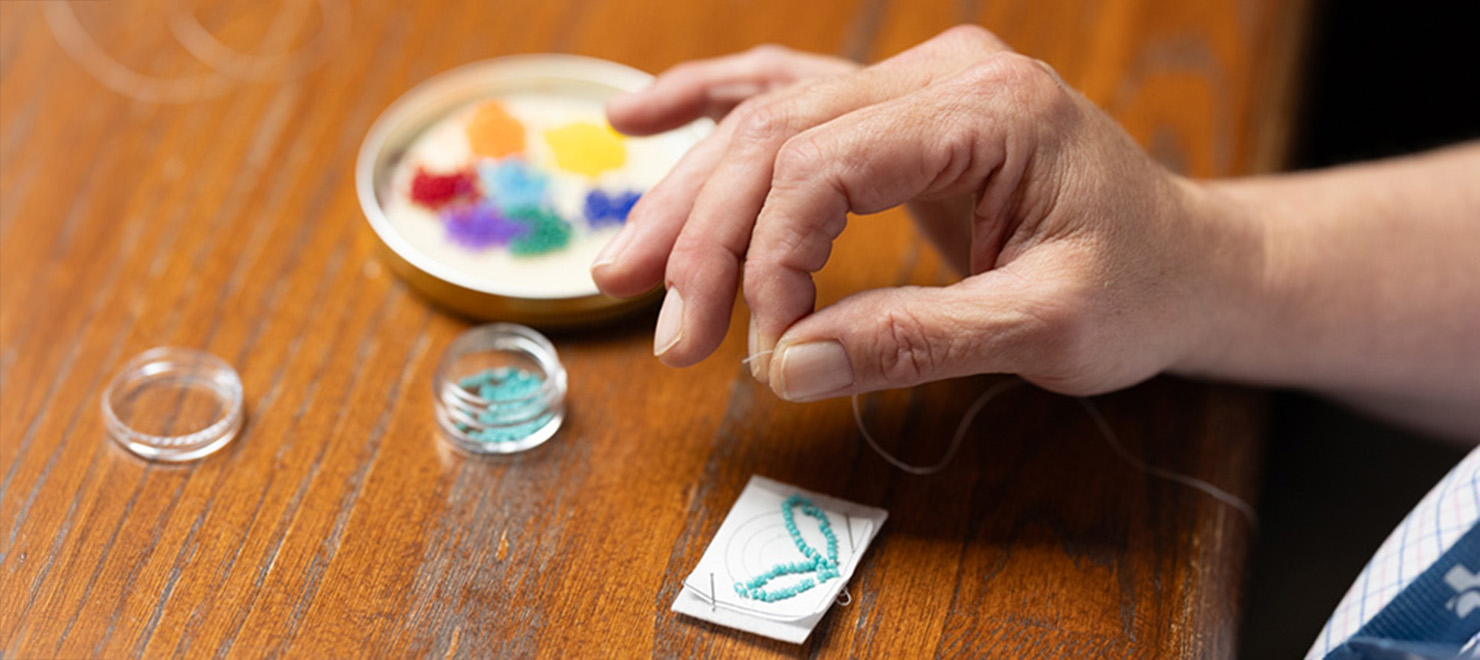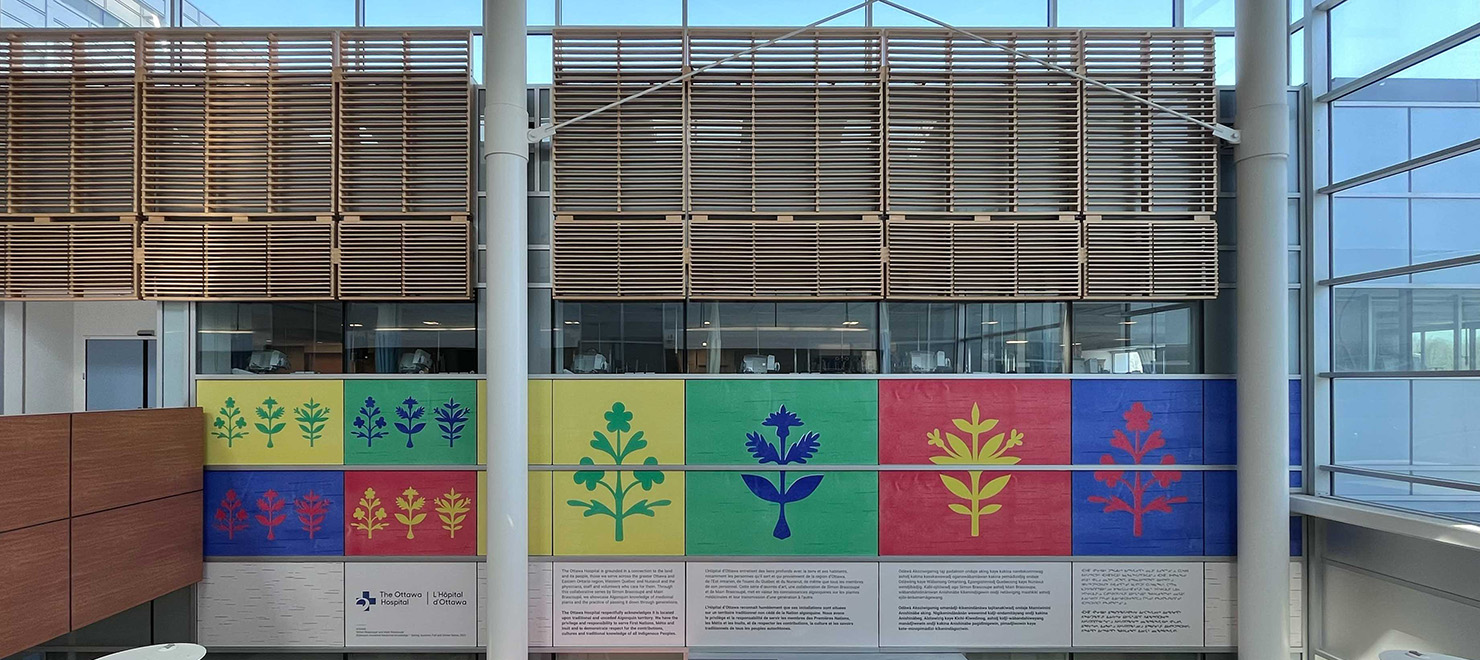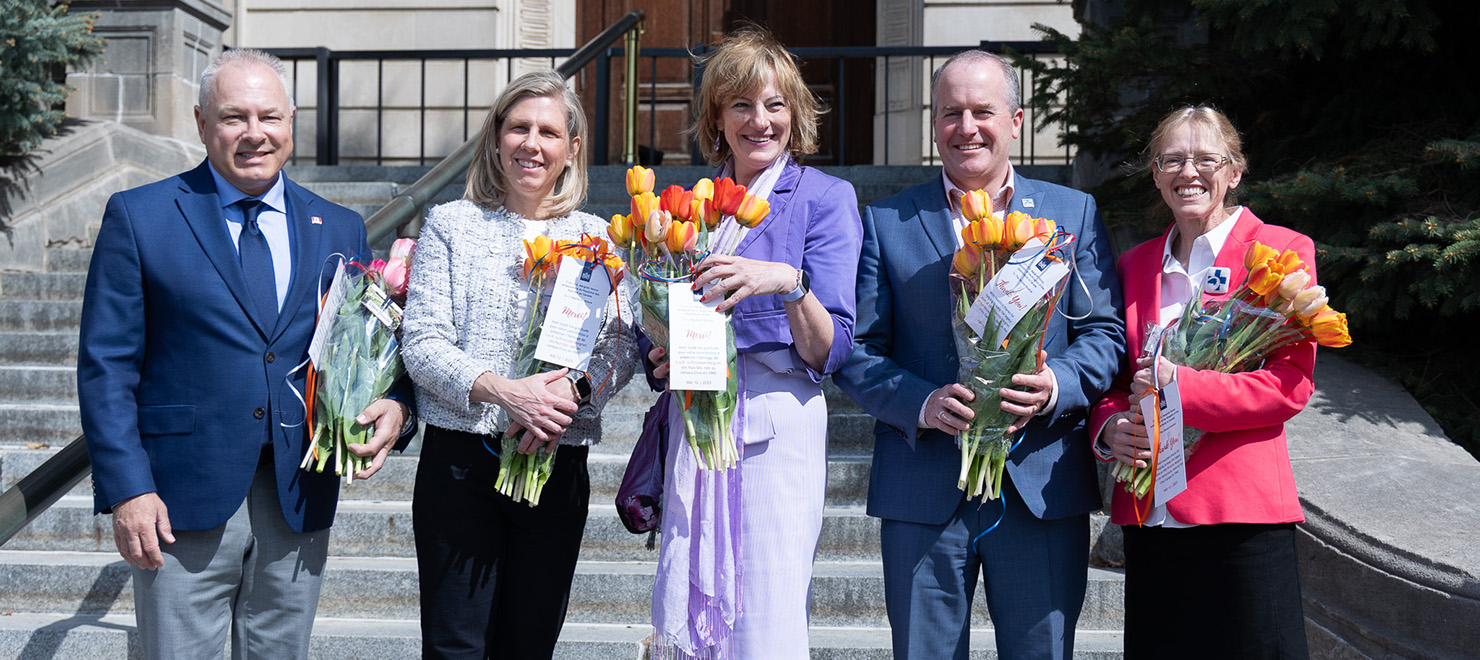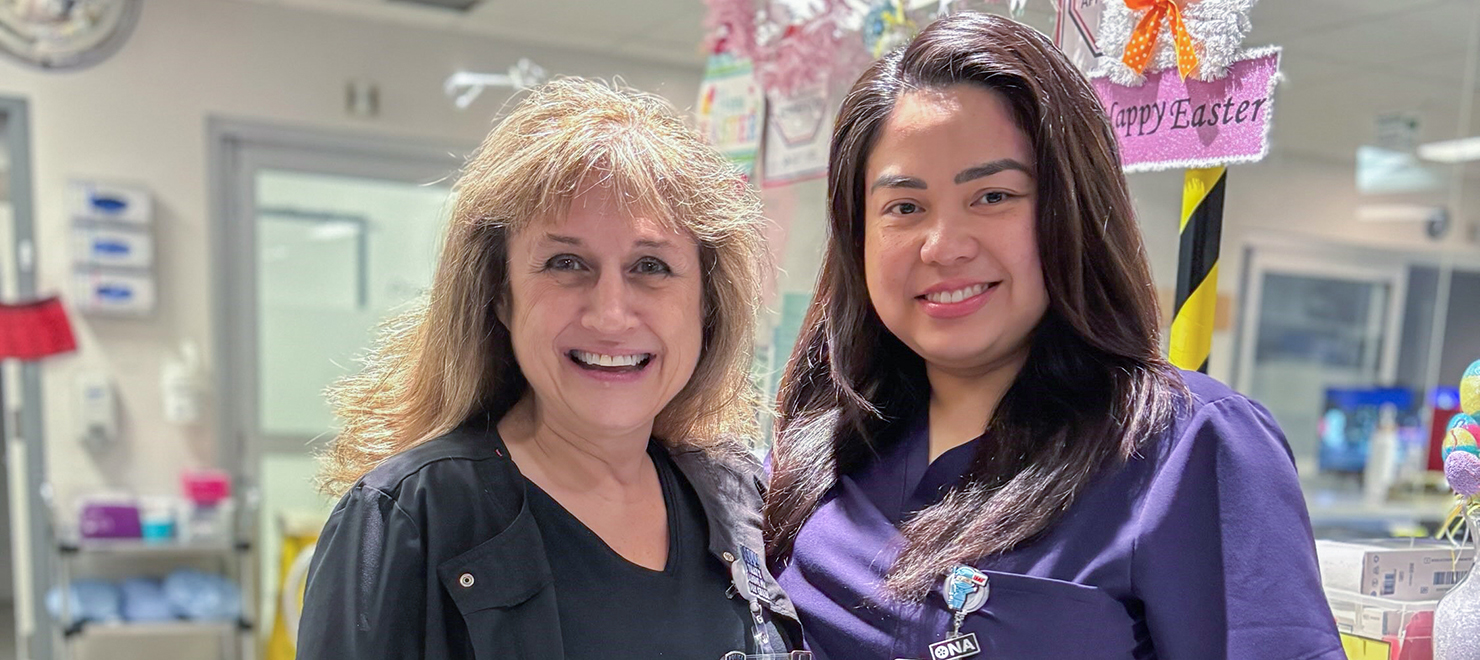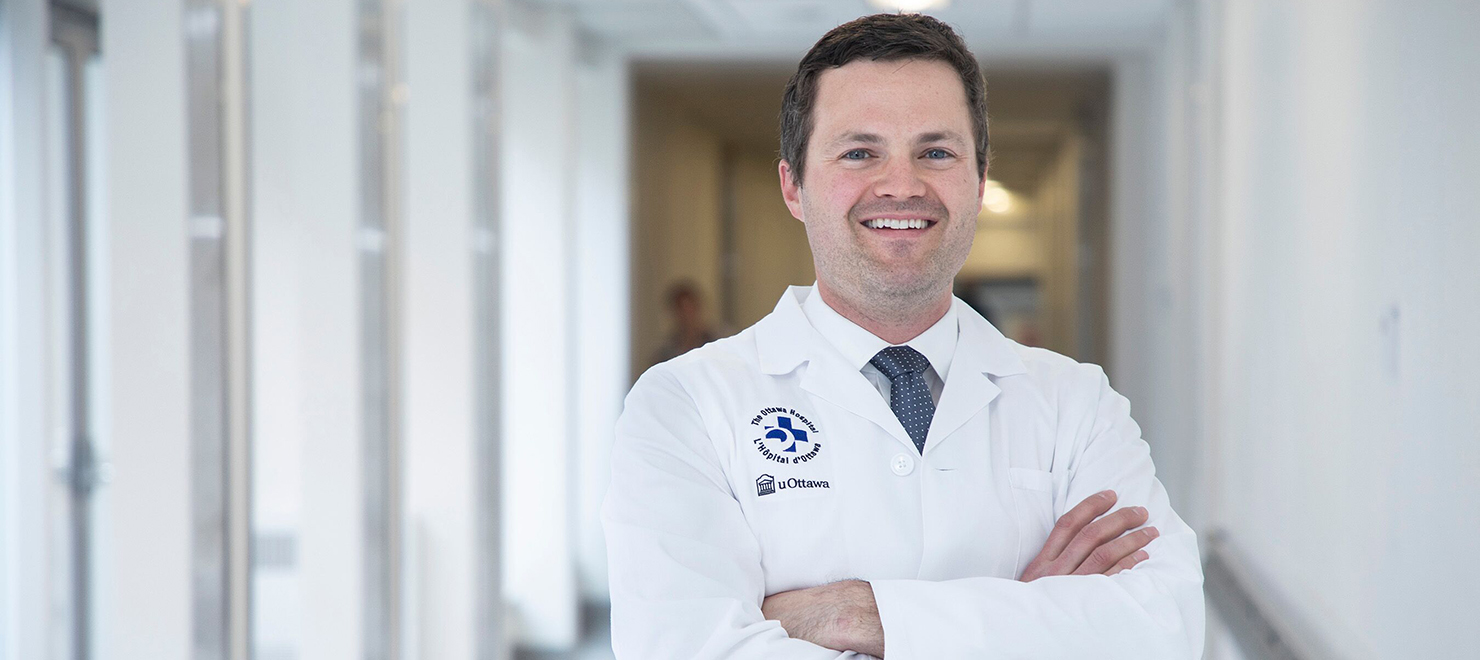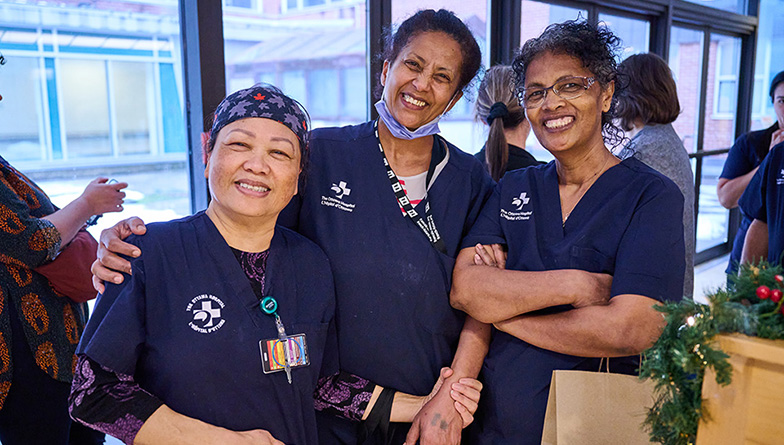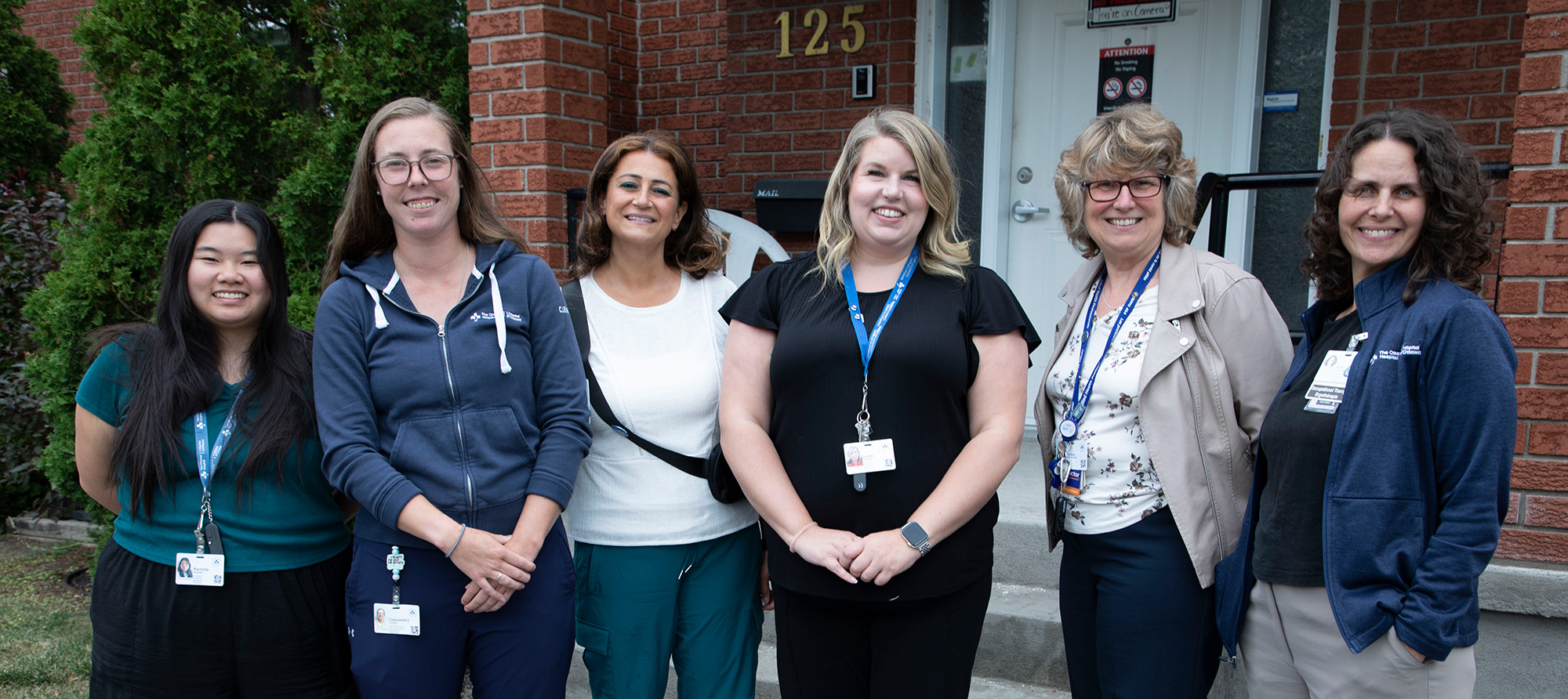
Meet the close-knit team at the Robin Easey Centre.
How did you start your morning?
Did you make a full breakfast? Jump in a cold shower? Squeeze in a run?
For most of us, these everyday tasks are second nature. But for people adjusting to life after an acquired brain injury, they can be overwhelming.
That’s where the team at The Ottawa Hospital’s Robin Easey Centre comes in.
In this short Q&A, Clinical Leader Nesrine Awad Shimoon and Life Skills Counsellor Sarah Jessup share how the Centre helps clients rebuild routines, regain independence and find new hope in life.
Who do you help at the Robin Easey Centre?
Nesrine: We work with people who have what is called an acquired brain injury. This is any injury to the brain that happens after birth, and can be caused by a trauma, tumour, stroke, infection or other medical condition. These injuries can affect all aspects of someone’s functioning, including behaviour and cognition, making it difficult for them to manage everyday life — even the little things they used to do every day.
How do you and your team provide support to people with an acquired brain injury?
Nesrine: We help them prepare to reintegrate into their community. We build personalized treatment plans based on each client’s needs, abilities and goals. Then our life skills counsellors, like Sarah, work directly with clients to help them rebuild their daily routines and move toward independent living.
How did the Centre get its name?
Nesrine: Sgt. Robin Easey was an Ottawa police officer who was severely wounded in the line of duty, leaving him partially paralyzed, legally blind and with a brain injury. He became a passionate advocate for rehabilitation and support for people living with brain injuries. Our Centre is proudly named in his honour. Robin passed away in 2023 at the age of 70, but his legacy of compassion and dedication lives on.
The Centre looks just like a home. Do your clients live here?
Nesrine: That’s because it is a home! The Robin Easey Centre is a big, cozy, five-bedroom house tucked away into a residential neighbourhood in Ottawa’s west end. It’s very open and spacious — we’ve got two living rooms, a kitchen, a dining room and an exercise room. It’s a great environment for practicing life skills in a real-world setting and getting around-the-clock support. Clients in our residential program live under our roof until they’re ready to re-enter their community, which usually takes a few months. And for those who are more independent or have strong support at home, we offer outreach services, which can be in-person, by video or by phone — whatever works best for them.
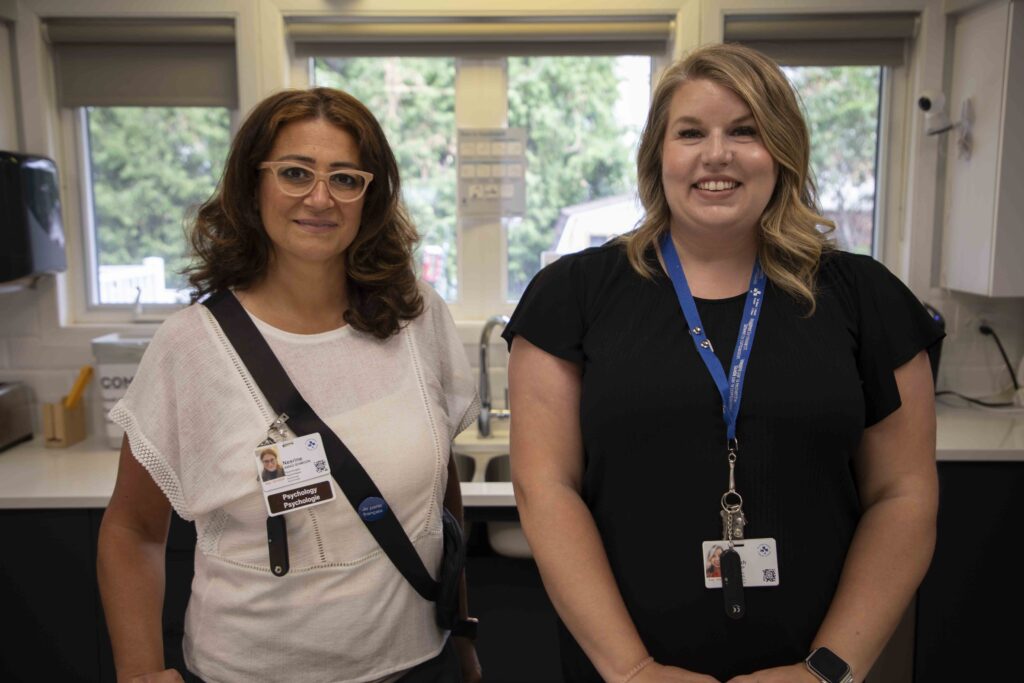
Could you walk us through a typical day at the Centre as a life skills counsellor?
Sarah: For sure! We life skills counsellors are really hands-on — we help our clients with everyday tasks and work with them to build daily routines. In the residential program, our days are usually pretty structured. In the mornings, we support clients with breakfast and medication, then we do what we call PAM — physical activity and mindfulness — which might include walking or biking. Around lunchtime, we help clients prepare their meals and again support them with taking their medication. In the afternoons, we typically have one-on-one sessions with clients, and in the evenings, we assist with supper prep and bedtime routines.
And what does support look like for people who live out in the community?
Sarah: For the outreach side of things, we typically see clients once a week depending on their needs. We’ll help them set up a daily routine and find meaningful activities outside the home — because they are usually stuck at home, may have limited transportation options and can’t get back to work if their injury affected that part of their life. So, we’ll give them ideas on how to structure their day and fill their life with things that matter to them.
What is the most rewarding part about what you do?
Nesrine: It’s helping clients access our services and seeing the meaningful improvements in their lives. Although it can be hard to see people faced with some devastating losses, it can also be rewarding when you feel you can help and make a difference.
Sarah: Giving clients a sense of purpose. A lot of our clients are lost in the new reality of who they are. And when they have a purpose — even something as simple as a meaningful activity — it gives them new hope in life. That’s always nice to see.
If someone wants to access your services, how do they do that?
Nesrine: To find out if our services are right for you and how to apply, please check out our webpage on the hospital’s website.
Sarah: And if you want to take a look inside the Centre, the page also has a really cool video tour!

Support patient care and research at
The Ottawa Hospital
You might also like…
Bringing communities together, one stitch at a time
In celebration of June being both National Indigenous History Month and Pride Month, The Ottawa Hospital hosted a beading workshop for Indigenous and 2SLGBTQIA+ staff and their allies.
A guide to services at The Ottawa Hospital for Indigenous patients and families
At The Ottawa Hospital, we are committed to providing culturally safe care for First Nation, Inuit and Métis patients and families. We are working with Indigenous partners to identify ways we can make your time in hospital more welcoming. Here are some of the ways we’re doing that now.
From Civic Campus to new campus: Dutch Ambassador visit marks ongoing legacy at The Ottawa Hospital
Dutch Ambassador Margriet Vonno visited our Civic Campus to present tulips to hospital staff, honouring the longstanding bond between Canada and the Netherlands and celebrating Princess Margriet’s legacy as The Ottawa Hospital looks to the future of health care.
Novice nurses and their mentors learn and grow together
Discover how mentorships at The Ottawa Hospital facilitate a smoother transition into practice for novice nurses, allow experienced nurses to hone their leadership skills, and play a crucial role in retaining nurses from both generations.
Do you have a surgery coming up? Here are five “prehab” tips to help you recover faster
You’ve probably heard about rehabilitation, but what about “prehabilitation”? Prehab is all about getting your body and mind in top shape before surgery so you can enjoy a smoother, quicker recovery. Discover five essential prehab strategies from researcher Dr. Daniel McIsaac.
Photos: A century of women in health care
March 8 is International Women’s Day, and we’re celebrating the incredible women – past and present – who make The Ottawa Hospital a world-class health care organization.


 To reset, hold the Ctrl key, then press 0.
To reset, hold the Ctrl key, then press 0.
